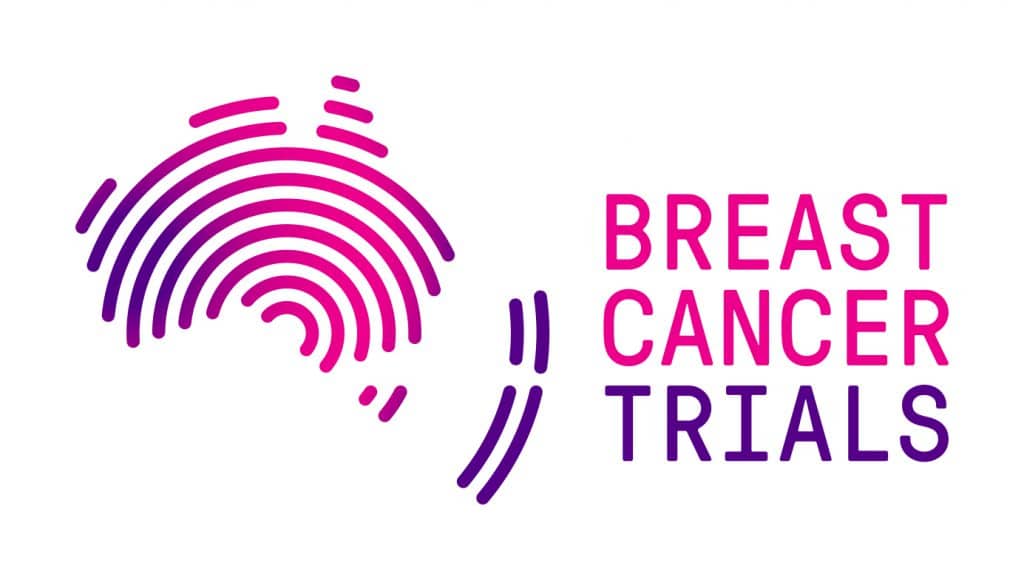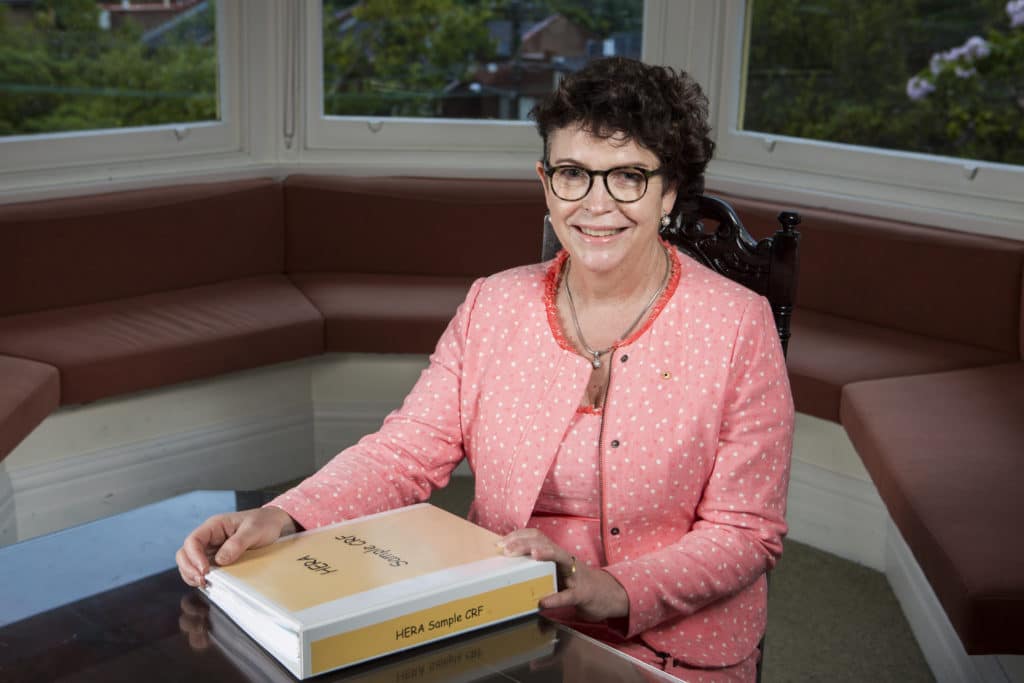Communication plays a key role in a good relationship between a patient and their doctor. Research shows that after receiving bad news, anxiety, distress and even anger can be felt by patients. Understandably, patients often can’t process information that is said to them following bad news.
Professor Fran Boyle AM says health practitioners are responsible for what happens in that conversation and it’s a time when they need to show empathy rather than provide vast amounts of information. It’s important too that treatment teams check that a patient has understood what is being said to them. Health literacy can impact a patients understanding of their treatment and their disease, and can lead to greater distress.
So doctors have to remind themselves of what it is like to sit in the position of a patient and reading the memoirs of people who have been through a cancer experience can be very useful. Here is an excellent resource called the The Patient Doctor by Dr Ben Bravery. Dr Bravery became a doctor after he survived bowel cancer.
She says using the right language may be the difference between someone willing to participate in a clinical trial, which may save their life, or running away because it sounds too scary.
“Understanding what’s happening to you when you have breast cancer is absolutely critical. And so, it’s our responsibility as health professionals, not just to tell people stuff, but to actually have a conversation and a discussion that shows that the patient actually understands what we’re telling them.”
“So informed consent, isn’t just that you’ve told someone something, but that they’ve actually understood what it meant, and what the impact of that might be for them in a personal way, and they’ve had a chance to ask questions. So, if we are actually not using language well, then all of our informed consent is not valid, and patients have difficulty adjusting to what’s needed for treatment, but also then fears and concerns that don’t actually get addressed.”
“Research shows us that after receiving bad news, anxiety, distress, anger sometimes as well, is likely to wash over the patient and for at least the next few minutes. They’re probably not going to be processing terribly well anything you say to them. So that’s a good time for doctors to stop talking, and actually use ways of showing empathy, rather than trying to give information.”
“Patients often say, ‘after the event it was just a blur’ and ‘I have no idea what they said to me next’. And so that’s worth us remembering because we’re responsible for what happens in that conversation. One of the most common misconceptions in language is actually the use of the word positive.”
Listen to the Podcast
We spoke with Professor Boyle AM about the importance of using respectful and inclusive language in breast cancer care so that patients can understand and make informed decisions about their treatment.
What are some of the common words or phrases used in breast cancer treatment, that if used incorrectly can have a negative impact on a patient?
“So, in ordinary conversation, if I said to you that it’s a positive result, you’d think, you beauty, that’s great. We use the word positive though in a breast cancer sense to mean a positive lymph node is one that’s got cancer in it. A positive margin is a situation where the surgeon hasn’t been able to get all the cancer out. Hormone positive cancer might be a good thing to some people and a terrible thing to others. And HER2-positive breast cancer used to be a terrible thing. It isn’t anymore because we know how to treat that.”
“So that simple word positive is very confusing for patients. Is that good? Is that bad? And if you don’t explain then the patient goes away wondering how much trouble they are really in and they haven’t had the chance to clarify that.”
“Another good example that’s used by health professionals is the idea that if a treatment isn’t working for a patient, it’s common to hear people say in conferences, the patient failed first line treatment. Well actually the patient didn’t fail, the treatment failed. It didn’t produce the result that we wanted for that individual person. And it’s almost as if you’re trying to put the blame back on the patient for the fact that the treatment didn’t work. So clearly that’s not something that should be used in conversation with patients.”
Is the use of language something that is taught in the training of health professionals?
“We start communication skills training these days with our medical students very early in their first year of training. And the reminder that as they’re learning a new language, the language of medicine, they actually have to not lose the language they spoke before. So, they have to effectively become bilingual. To communicate with their other professional colleagues, they need one language and to communicate to patients they need another language.”
“And they may need, of course, an interpreter to help them with all of the other languages that our patients may have. So, just because you’ve focused on learning the jargon, don’t forget that ordinary words are going to be what you’re using in conversation with patients.”
“Clinical trials have eligibility criteria. Eligible is a word we use about bachelors. It’s something that’s great about someone. So, if you say to a patient, I’m sorry, you’re not eligible for a clinical trial, straight away they’re thinking that they’ve failed again. First of all, they’ve been diagnosed with cancer, and now they aren’t eligible for a trial, which is not a great place to be. So, what we should say instead is this trial is not suitable for you and let’s look again in the future because other opportunities may arise.”
“The word random is also something that we use when we’re talking about clinical trials. We randomize people. Well, random’s a word that in ordinary conversations with my children, they would think a random was a person who lived on the street, who was likely to be dangerous. And it’s not a great word when thinking ‘okay, I want to be randomised’. Another thing to think about is the analogy we use of tossing a coin, which can be described as randomisation. And if you happen to be a Seventh Day Adventist, anything that suggests gambling in any way at all is not going to encourage you to participate in a clinical trial.”
“So, thinking about the sorts of language we use may be the difference between someone being interested and willing to be involved in a clinical trial that could save their life and running away because it all sounds too scary.”
What has worked for you in communicating with patients?
“One of the things I’ve learnt is that you should always check that people have understood what you say. And that might be because they’re in a moment of strong emotion. It might be because their level of health literacy is not very high. Even simple words that describe parts of the body. The liver, the axilla, are things that people may not understand, especially if English is not their first language.”
“And so, checking that someone’s understood, that by axilla you mean the armpit, is actually very important. And patients often say to me, that was jargon, that was what you might say to one of your colleagues, but it’s not what I need to hear.”
“We do a lot of communication skills teaching with Oncology Professionals. They were actually the pioneers in this area in Australia, and all of our Oncology and Surgical Trainees come through a rigorous communication skills training program. And that’s run through the Pam McLean Centre at the University of Sydney.”
“And there are other providers around the country. What we do is we work with actors. They portray the role of the patient, and they give feedback to the person who’s participating. I didn’t get that. That didn’t feel like empathy. I didn’t understand what you meant. And that helps people to refine their skills. When there’s something new to learn in communication, a new trial that’s a little bit tricky to explain, or a new idea, then we might need to do some more training with people who are quite experienced, if it’s not something that they’ve been familiar with discussing.”
“So, it’s not something that stops when you leave medical school, it’s something that continues throughout your life.”
Are there any resources that you would recommend to patients or health professonals about this topic?
“In terms of resources to help sensitise people to how it feels to be a patient, reading memoirs of people who’ve been through a cancer experience can be very useful. There’s a great book by Ben Bravery called ‘The Patient Doctor’, and his experience of having colorectal cancer inspired him to become a medical student and now a Psychiatry Trainee and I would really recommend that.”
“Another great book is called ‘When Breath Becomes Air’ and it’s about a Neurosurgeon who has the experience of having lung cancer. And just seeing it from the other side is something that can help to open your eyes to what it’s like to be a patient and how many simple things are easy to misunderstand.”



